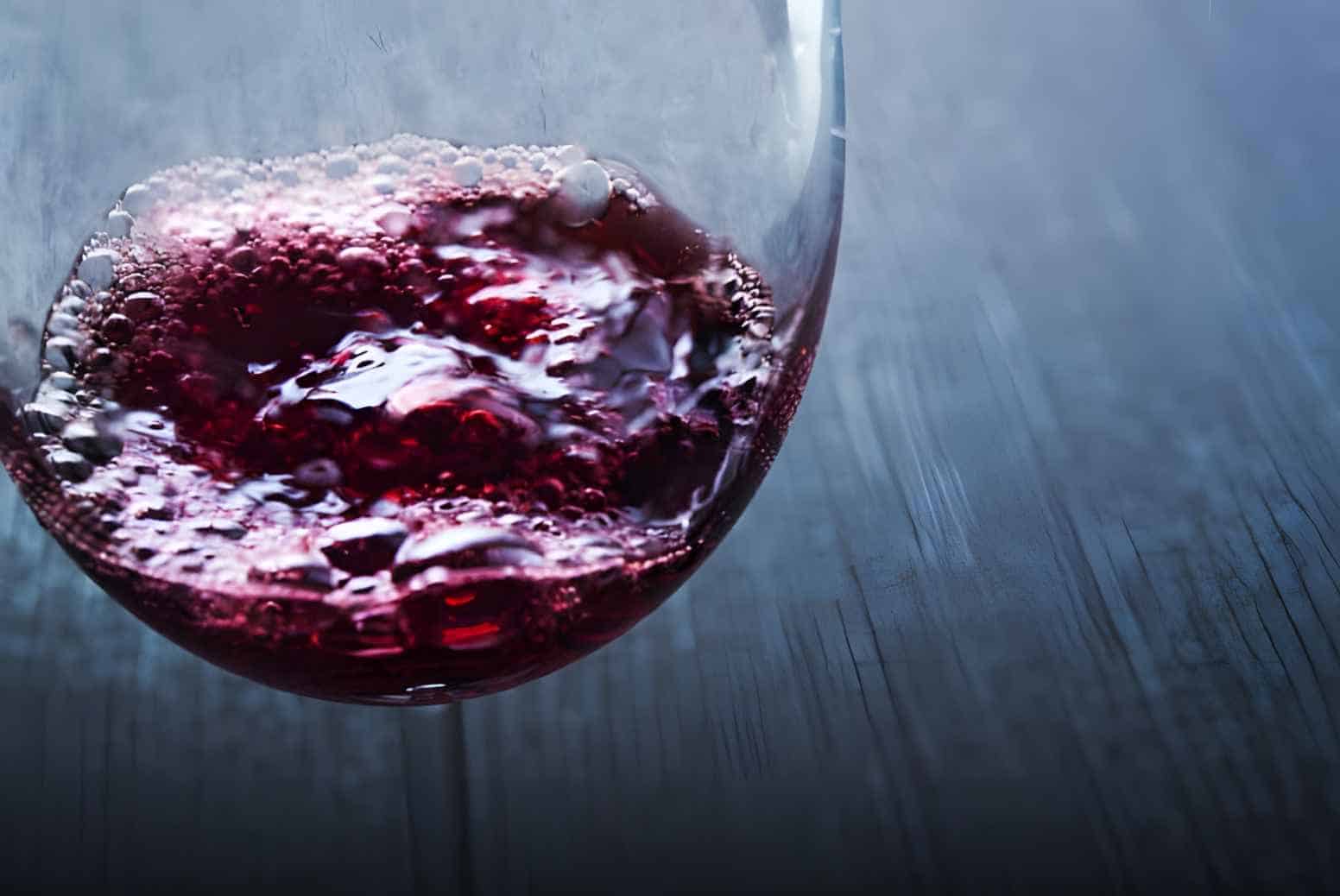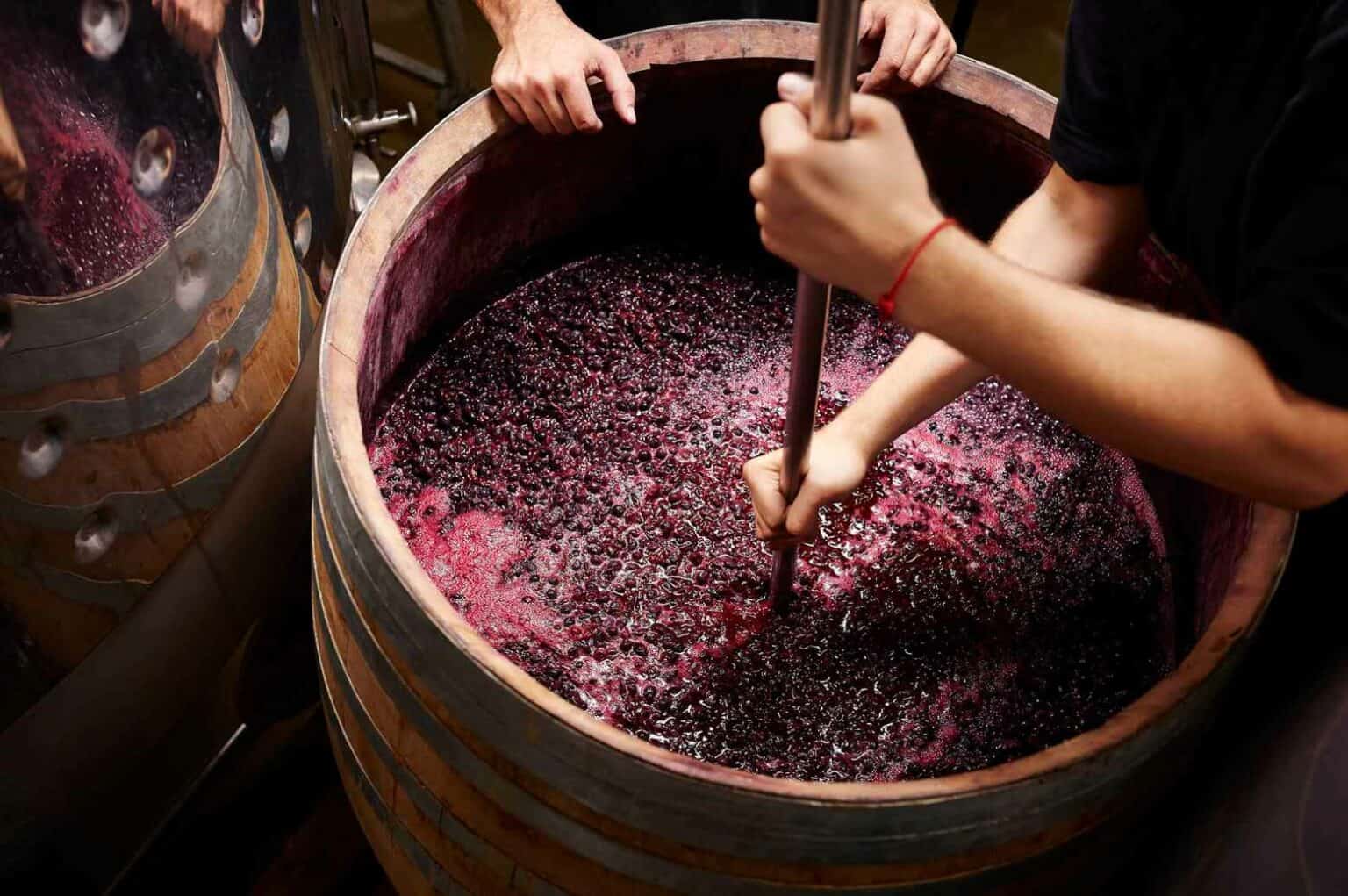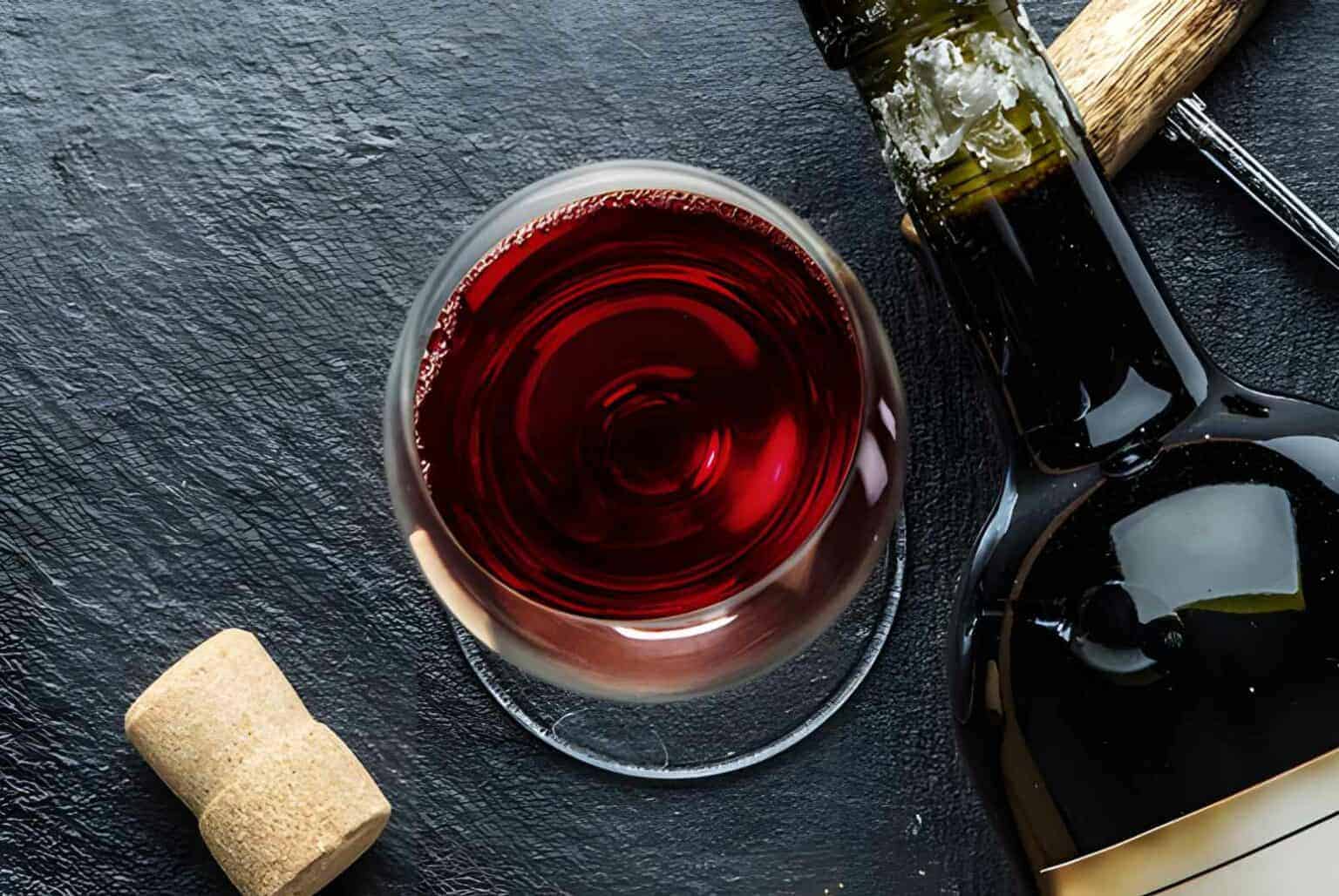Tannin is an essential component in winemaking. Although not everyone is aware of it, this ingredient has a crucial effect on the taste of the said drink.
For this post, we will tell you what are tannins in wine and how they affect its quality. We will also let you know its sources, health benefits, and why it is crucial. Brace yourself because there will be too much information to take!
What are tannins in wine?
From a more scientific point of view, tannin is a complicated topic. It is an organic compound found in a family of polyphenols. Tannin is a substance that you will get abundantly.
Its sources include tea leaves, dark chocolate, almond, cinnamon, cranberry, cacao, bark, oak, and wood. But, the ones we get from grapes are the only ones suitable for winemaking.
If you make homemade wine and use grape seeds, skins, and stems as ingredients, you will probably have tannin. Note that each type of grape has different tannic content. If you want actual proof, you can drink the wine and confirm if it has a tannic taste.
Tannin is the component that makes the wine astringent and bitter. Wines with high tannin content also feel dry in the mouth when you take a sip. People who like such wine can go for a high tannic wine. Just expect it to be more bitter.
So, how does wine become tannic? Figure it out in the next part of this post!
How does wine become tannic?
Well, the answer to this question is simple. There are two reasons why wine contains tannin. The first one is through the grape ingredient, while the second one is because of the barrel or container.
Let us discuss this with you!
Through the grape
As we said, grapes can produce tannins– their seeds, skin, and stem. Use this as an ingredient, and you will have a tannic wine. Ever wonder why red wines taste bitter? This is the main reason!
Moreover, the longer you ferment the grapes with the other ingredients, the more tannic they will become. The same principle is also applicable for a lesser time of exposure.
Wines that are also much older contain more tannin than the younger ones. So, if you like high-tannic wine, get the one that has been fermented for a long time. You will never go wrong with it!
Through the barrel
Not many people know, but the container where you will ferment the wine also contributes to the tannin content your wine will have. If you use a barrel, higher tannin will develop.
We know that barrels are made of wood, and wood contains tannin. So, if wine is exposed for a long time, the tannin from the container will break down and mix with the wine. We hope that does not confuse you!
Wines fermented in a barrel or in any wooden container develop a tannic taste, even if it does not have grapes.
Which wine has the highest tannin content?
Generally, red wines have the highest content of tannin. This is because they have total exposure to the grape seeds, skin, and stem. These parts of the grapes are not removed during the fermentation process. That’s why more tannins are excreted.
On the other hand, white wines contain a little tannin. It is because only the grape juice is mixed with it, not the parts with tannin.
The tannin comparison doesn’t end with just the red and white wine. We can make it more precise by comparing the grape type used in each wine. If you are not yet aware, the kind of grape winemakers use also affects the tannin content of the wine.
Here is a table listing what grapes have high and low tannin content. If the grape has high tannin, the wine made from it is also high tannic.
Grapes with low tannin content
- Pinot noir
- Dolcetto
- Gamay
- Barbera
- Grenache
- Zinfandel
- Tempranillo
Grapes with high tannin content
- Cabernet Sauvignon
- Sangiovese
- Nebbiolo
- Monastrell
- Petit Sirah
- Tannat
- Malbec
Grapes with low tannin content usually have thinner skins. You can refer to this simple guide when choosing grapes for your wine or even if you are buying from the market.
Why are tannins important in wines?
Maybe you are wondering why tannins are essential in wines when they only cause bitterness, dryness, and astringent taste. Well, we can’t blame you for that. But, remember that it has good sides too.
Tannins can create balance in the wine. We assume you don’t prefer to drink too sweet or too acidic wine, right? Having the right amount of tannin will balance all these flavors and tastes.
The tannin component also adds texture and structure to the wine. These are necessary to enjoy a high-quality wine. Most of all, tannins hugely impact the aging process of wine. Wines with a higher tannin content will still preserve their structure, which means the quality is still intact.
Long fermentation of wines with low tannin is not ideal, on the other hand. Since these wines already have low content, breaking down the tannins will ruin the quality of the wine.
The longer the fermentation, the fewer tannins left! We talked about the importance of tannins in wine, but how about their importance for humans?
What are the benefits I can get from tannins?
Tannins have plenty of uses, not only for wine but also for us humans! We can get many health benefits if we intake a substance with high tannin content.
One of these is the natural antioxidant from it. This is the most known advantage when consuming tannin. Tannins help fight oxidative stress and balance free radicals. The antioxidants from tannin also help in maintaining heart health and preventing cancer.
Another health benefit is its antibacterial effect. Tannins can combat the pathogens in our stomachs. Also, even highly acidic people can still benefit from this since tannins are acid resistant.
Tannins can help slow the development of Alzheimer’s and Parkinson’s diseases too. It is due to the anti-inflammatory and antioxidant components of tannin.
For most people, tannins can also be a mood-changer substance, literally! It can help improve mood swings, so it can also be an antidepressant.
As you can see, tannins can contribute to maintaining a healthy body. It is a powerful substance if consumed wisely! But, if not, there will be not-so-ideal side-effects too.
What are the side effects of tannins?
Compared to the benefits, tannin has only two harmful effects on the body. One is that it can cause migraines. Second, it is not a good nutrient absorber.
Migraine
Migraine is somehow common after drinking alcoholic beverages, right? But, if it happens while you are drinking it and not after you drink it, there goes the problem.
Some people are more sensitive to tannin. Even a small amount of it could cause headaches and migraine to them. That’s why it is essential to do thorough testing first.
There is a simple way to know if you belong to the people we just mentioned. Grab a bite of any food with tannin content. Dark chocolate, tea, cranberries, or fresh grapes will do. Just do this as an experiment; if your body reacts badly, then stop it immediately.
Remember, it is essential to know this because tannin is present almost in everything. We could avoid further health issues once you confirm.
Blocking of nutrients
We can say that tannin hates nutrients, especially iron! Tannin blocks the absorption of nutrients in our body. We all know that the food we eat supplies nutrients to the body, but if tannin is present, it becomes impossible.
If you have iron deficiency, you should think twice before consuming a substance with tannin. Consulting a doctor or dietitian will be fine too. Intake of too much tannin can cause nausea and upset stomach also.
Can I drink wine without tannins?
Unfortunately, a wine without tannin is not yet present in the market. Since all wines are made from grapes, only in different varieties and processes, it is impossible to find a wine without a tannic taste.
But, some are low in tannin content. So, we encourage you to look for those drinks instead. White wines and Rose wines are examples.
White and Rose wines are made with less contact with grapes. Most of the time, winemakers only include the juice from the grapes and they set aside the skin, seed, and stem. In this case, the tannin is lower than usual.
We also think that it is best to look for wines that are not fermented in an oak barrel. If there is less contact with wood, then it probably has less tannin too.
Before we conclude, if you need more information about tannins in wine, you can check these videos:
Conclusion
That’s it! All the information about what tannins are in wine is written in this blog; we hope it helped you!
Tannins are suitable for the body, as well as it is good for wine. On the other hand, too much of it will cause unhealthy side effects, and soaking it in the wine for a long time causes too much bitterness. It’s like wine and bodies get the same impact when exposed to tannin, don’t you think?
Just kidding! Overall, remember to moderately consume wine with tannins.

George Moore, co-founder of Wine Flavor Guru, is a charismatic entrepreneur with a rich background in California’s wine industry. Alongside Sylvia, he transformed a Sonoma County vineyard into a source of premium wines. George’s expertise in sourcing exceptional grapes and his approachable style make wine appreciation both accessible and engaging.









